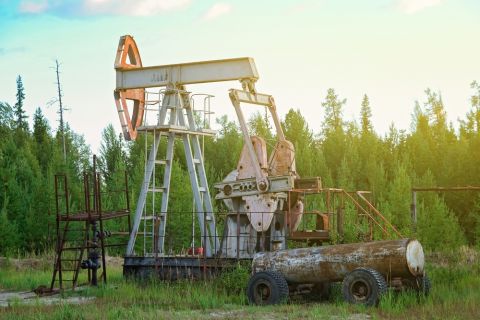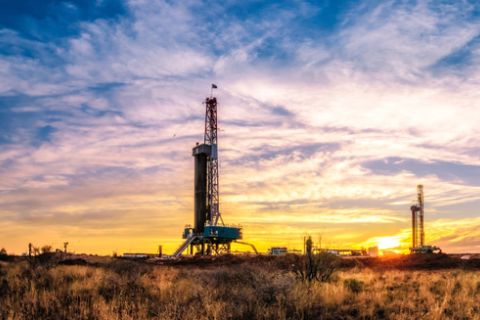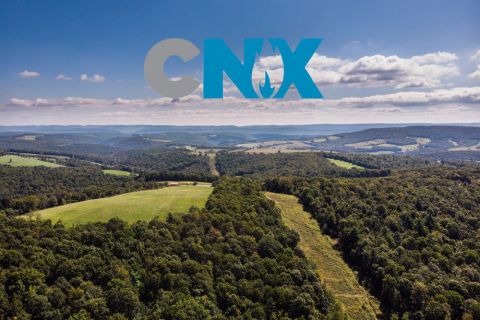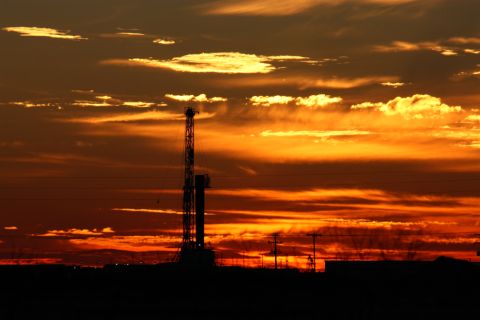Like the train engine in the similarly named children’s story, the American Association of Drilling Engineers (AADE) seems to be rising to the occasion. Working in the shadows of larger and perhaps better known professional organizations like the Society of Petroleum Engineers (SPE) and International Association of Drilling Contractors (IADC), a top-notch technical program for its just concluded 2007 National Technical Conference and Exhibition is an indication of how far AADE has come.
AADE was founded in New Orleans, La., in 1978 and is made up of an affiliation of nine independent chapters licensed and governed by an AADE National Board. Nine chapters are now active in New Orleans, Lafayette, La., Houston, Dallas-Fort Worth, Midland, Texas, Oklahoma City-Tulsa, Okla., Denver, Colo., Bakersfield, Okla., and Anchorage, Alaska.
According to the organization, national membership is more than 5,000 as of December 2006. The Houston chapter unsurprisingly is the largest in the organization and represents about half its membership.
As you might expect of any professional society (especially in this industry), AADE conducts its share of social events, some of which are the equal of any in terms of entertainment value. (Ask anyone about F5 — Fin Fur Feather Food Festival.) But when AADE gets down to business it does so in some noteworthy ways, and education is an area that gets a lot of its attention.
AADE has 10 student sections in universities across the country including the Colorado School of Mines, Louisiana State University and the University of Texas, with about 400 members in all. But AADE does more than that. One interesting program aimed at grade school students is worth a mention.
In conjunction with the Offshore Energy Center, AADE sponsors the Knowledge Box Education Outreach Exhibit and Program, which includes the Project Expanding Energy Education (PE3) Teacher’s Guide. This program intends to fill the vacuum in energy education and targets grade school students with an energy-related curriculum.
The Knowledge Box is literally that. Its contents include posters, student newspapers, booklets, videos, industry resource books, CD-ROMs, teacher resources, models of faulting and a drill bit, oil samples and more. Its purpose, says AADE, is to provide educators a forum to effectively present the petroleum industry and to inform students of the vast career opportunities in the field.
The organization notes several weaknesses in public education that the Knowledge Box program is designed to counter: science disciplines are often perceived as mutually exclusive, secondary science is deficient in earth science concepts after eighth grade, many ecology and environmental topics focus on negative impacts of industrialization and the many energy industry positives are not acknowledged.
It also notes some student misconceptions that underscore the need for energy education: oil is found in pools and puddles underground, we drill for gasoline, major oil spills happen often and spills from oil and gas exploration and production are the leading cause of oil pollution in oceans and rivers. Some think the oil we drill for is the same as the oil we use for cooking.
Among other things, the Knowledge Box program seeks to:
• Discuss the importance of petroleum in our lives;
• Communicate connections between geology, petroleum and future careers;
• Describe the economic significance of the industry;
• Analyze the effects of faulting, folding and earth’s movement;
• Describe the origin of oil and natural gas;
• Evaluate the economic and environmental impact and issues related to fossil fuels;
• Explain ow to locate, drill and produce a well; and
• Describe land and offshore operations.
Is the program working? Here are some student responses to poll questions: “I learned where oil came from” (92% agree); “I learned about the petroleum industry” (80% agree); “I learned something new about petroleum” (81.5% agree); and “Overall I liked the Knowledge Box” (80% agree).
Teacher feedback is even more positive — 100% indicated the Knowledge Box effectively supplements science curriculum.
Twenty Knowledge Boxes are in circulation or will be soon. Each box has direct and indirect costs of roughly US $12,000. AADE seeks donations to grow the program.
AADE was also a participant in the 48th Science Engineering Fair of Houston along with API, SPE and several oil and gas operators and service companies. AADE selected a project for an award and made a financial contribution to both the student and the student’s school.
The core mission of AADE, is “to provide the forum for the dissemination of practical drilling technology to those employed or interested in the drilling industry.” For example, the Houston chapter has three study groups: emerging technology, fluid management and deepwater industry.
Each attracts up to 250 attendees. But the chapters have also grown strong enough to make charitable giving another key part of its mission. The Houston chapter alone gave $250,000 to charities last year.
AADE is not unique. All of our professional organizations make invaluable contributions to the industry, its members and the communities where they work. They all deserve recognition. AADE is just a little overdue.
Recommended Reading
NAPE: Turning Orphan Wells From a Hot Mess Into a Hot Opportunity
2024-02-09 - Certain orphaned wells across the U.S. could be plugged to earn carbon credits.
Comstock Continues Wildcatting, Drops Two Legacy Haynesville Rigs
2024-02-15 - The operator is dropping two of five rigs in its legacy East Texas and northwestern Louisiana play and continuing two north of Houston.
CEO: Continental Adds Midland Basin Acreage, Explores Woodford, Barnett
2024-04-11 - Continental Resources is adding leases in Midland and Ector counties, Texas, as the private E&P hunts for drilling locations to explore. Continental is also testing deeper Barnett and Woodford intervals across its Permian footprint, CEO Doug Lawler said in an exclusive interview.
CNX, Appalachia Peers Defer Completions as NatGas Prices Languish
2024-04-25 - Henry Hub blues: CNX Resources and other Appalachia producers are slashing production and deferring well completions as natural gas spot prices hover near record lows.
Barnett & Beyond: Marathon, Oxy, Peers Testing Deeper Permian Zones
2024-04-29 - Marathon Oil, Occidental, Continental Resources and others are reaching under the Permian’s popular benches for new drilling locations. Analysts think there are areas of the basin where the Permian’s deeper zones can compete for capital.





